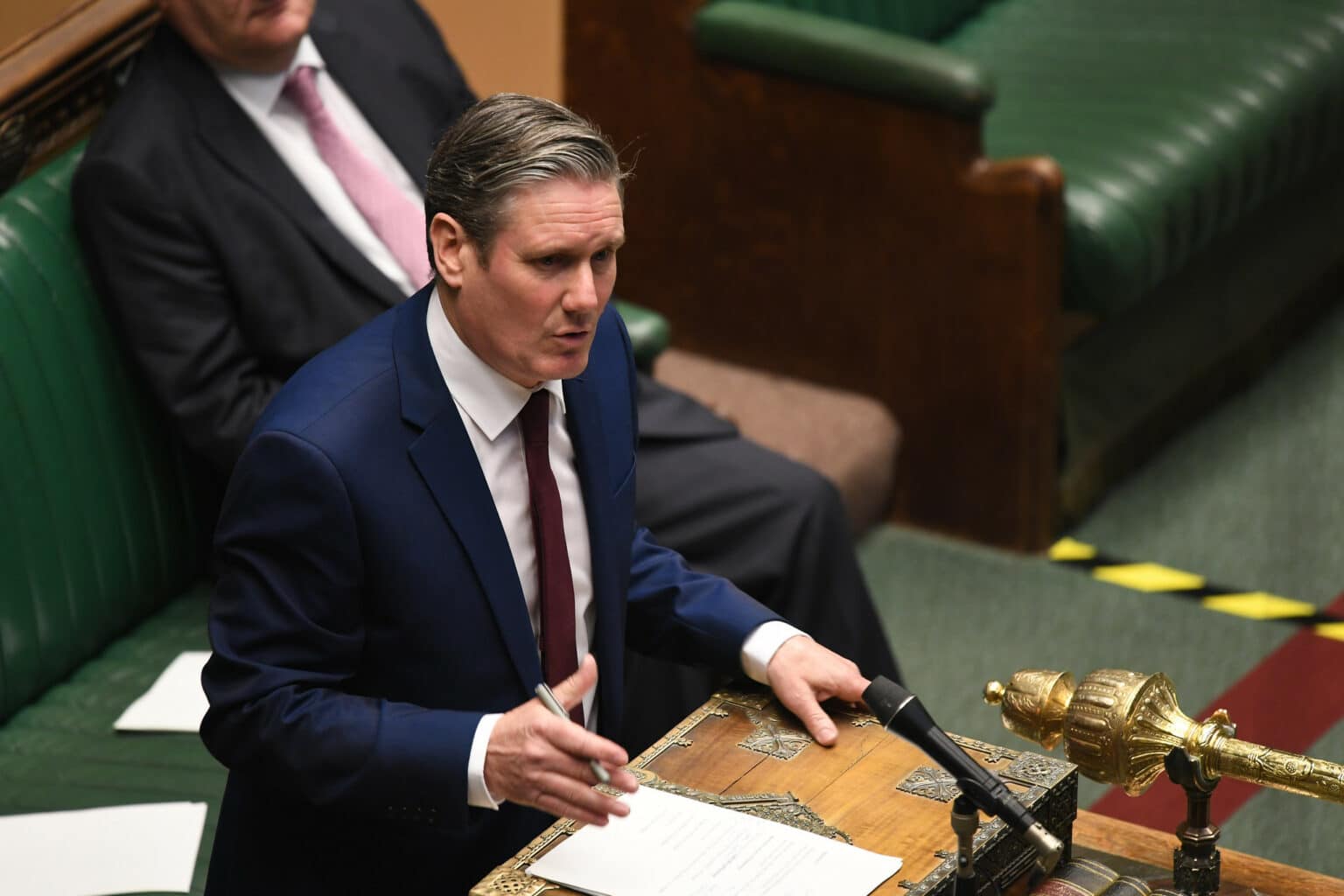The Labour Party has been accused of helping biomass energy giant Drax engage in “green spin” by holding a climate event at its upcoming conference sponsored by the North Yorkshire company.
Drax – which emitted 19.4 million tonnes of carbon dioxide in 2020, including 13.2 million from burning biomass, according to environmental law charity ClientEarth – is sponsoring an event called “How Can the UK Build a Zero Carbon, Lower Cost Energy Future?” at the Labour conference in Brighton on Monday.
The Green Party called it “green spin at its worst” while campaign group Biofuelwatch described the event as “deeply concerning”.
The news comes a fortnight after DeSmog revealed that Drax met with government ministers 31 times since Business Secretary Kwasi Kwarteng joined the department in charge of energy policy – more often than wind, solar and nuclear producers.
The panel discussion, organised by the New Statesman magazine, features Alan Whitehead, Labour’s Shadow Minister for Green New Deal and Energy, and Hilary Benn, a former shadow environment secretary.
They join Drax Group’s Director of Corporate Affairs, Clare Harbord, and Emma Pinchbeck, CEO of industry group Energy UK. Trades Union Congress (TUC) General Secretary Frances O’Grady has been invited but is not confirmed, according to the Labour conference website.
Drax, which had revenue of £2 billion in 2020, this year finished converting its four remaining coal power plants to biomass in an effort to become “carbon negative” by 2030. But green campaigners have repeatedly questioned its claim that biomass-generated energy is carbon neutral.
Zoe Nicholson, Green Party Green New Deal spokesperson, said: “Drax is neither low carbon nor sustainable in any way. The plant uses colossal amounts of wood, the majority of which is imported. It has also been propped up by billions of pounds in renewable energy subsidies, funded by the taxpayer.
“For the Drax corporation to sponsor an event at Labour conference on building a zero carbon future is therefore green spin at its worst.”
Drax received £832 million in government subsidies last year, according to ClientEarth, as well as up to £258 million in tax breaks, according to climate thinktank Ember, as biomass is considered “carbon neutral” under the UK Emissions Trading System and the UK Carbon Price support policy.
In July, Drax’s Head of Sustainability and Policy, Dr Rebecca Heaton, stepped down from the government’s expert advisory body, the Climate Change Committee, after criticism that her position involved a conflict of interest.
A Biofuelwatch spokesperson said: “Drax is able to hide its emissions from burning wood pellets thanks to an international carbon accounting loophole and UK policies, but in the real world, all of Drax’s carbon emissions are contributing to climate breakdown, regardless of whether they come from burning wood, fossil gas or coal.”
They added that government subsidies for Drax should be “redirected to fund genuinely low carbon renewable energy”.
‘Inherent Risks of BECCS’
Studies have raised major concerns about whether Drax’s burning of wood for energy is carbon neutral, including the sustainability of the wood it uses to make pellets that feed its power station and the emissions involved in transporting them from the US to the UK.
Daniel Quiggin, Senior Research Fellow at the Chatham House thinktank’s Environment and Society Programme, said: “Drax is currently seeking to develop bioenergy with carbon capture and storage (BECCS), which it is hoped will remove carbon dioxide from the atmosphere and form part of the negative emissions element of net zero. Indeed, net zero is increasingly reliant on BECCS.
“However, there are inherent risks of BECCS underperforming.
“If BECCS is to play a role in net zero then the government must be in receipt of independently verified evidence as to the performance of BECCS, inclusive of a robust assessment of the supply chain emissions from global wood pellet supply chains, which are likely to come under increasing pressure if BECCS is scaled to the levels many scenarios envisage.”
When asked, Drax said the company is “ideally placed” to sponsor and take part in the Labour conference event.
A Drax spokesperson told DeSmog: “Drax is already the largest decarbonisation project in Europe having cut its carbon emissions by more than 90 percent in under a decade by using sustainable biomass instead of coal – protecting thousands of jobs throughout our supply chains in the North.
“Now, by using bioenergy with carbon capture and storage (BECCS) Drax will go even further – permanently removing at least eight million tonnes of CO2 from the atmosphere each year by 2030, delivering the world’s biggest carbon capture in power project.”
They added: “BECCS at Drax will create 10,000 jobs across the Humber region, protecting tens of thousands more, whilst developing green skills, kickstarting new industries, and helping level up the North.
“We’re therefore ideally placed to sponsor and contribute [to] this event at the Labour Party conference.”
An Energy UK spokesperson said the Climate Change Committee sees a significant role for biomass with carbon capture in the net zero transition, adding that while people have concerns, Drax – which is one of Energy UK’s more than 100 members – is entitled to be part of the debate.
The Labour Party, New Statesman, and the TUC have all been contacted for comment.
Subscribe to our newsletter
Stay up to date with DeSmog news and alerts







